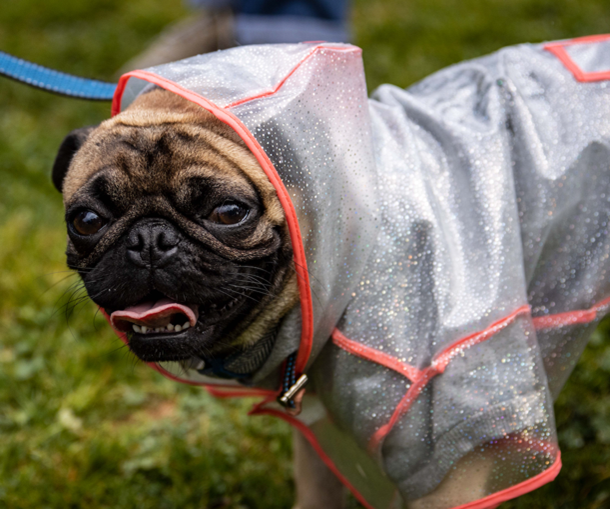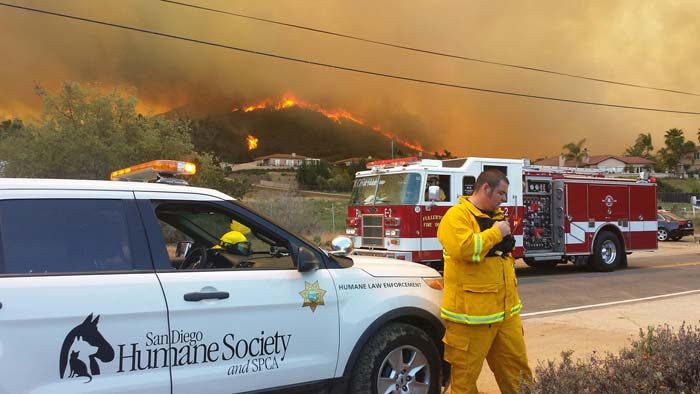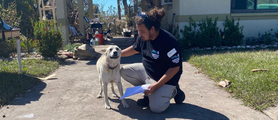Animal People:
Sterling Davis
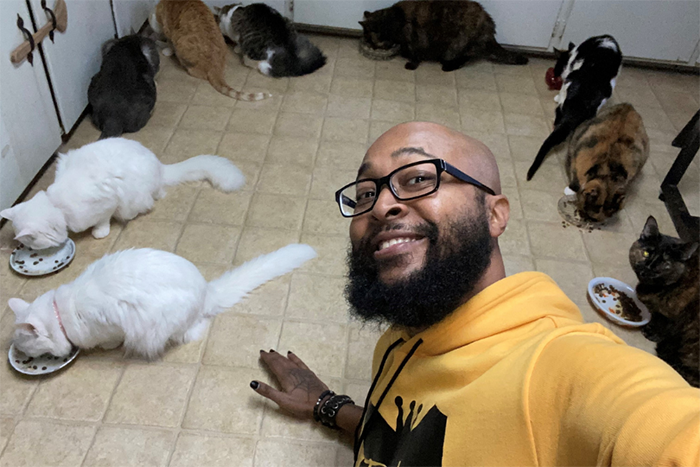
The Trap King
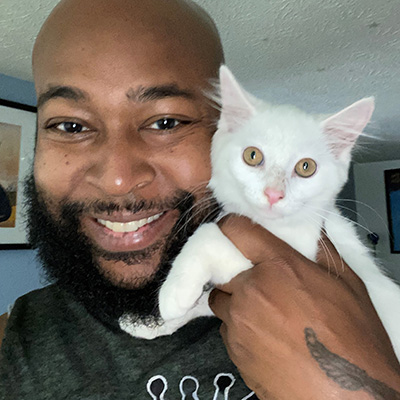
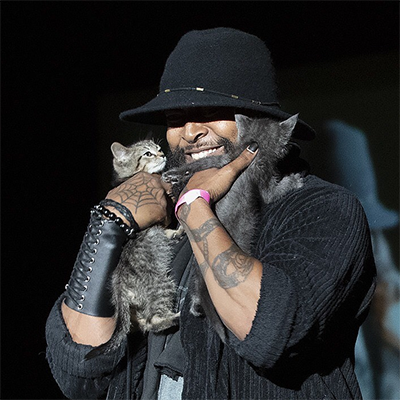
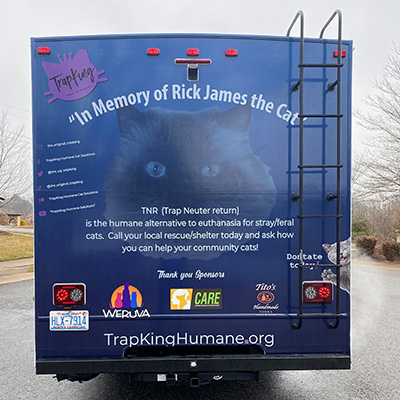
What started as a response to a Craigslist ad to change cat litter at an animal shelter has evolved into a passion for cat rescue – particularly Trap Neuter Return (TNR) efforts focused on helping community cats. Sterling Davis, a well-known figure in the animal rescue community who goes by the name Trap King, told us how his life changed after leaving a rising music career for the love of cats, and what these animals have brought to his life.
Where did your passion for cats begin?
Growing up I lived with so many different family members in so many different cities. I didn’t have my own pet so I would always connect with the outdoor cats. I would even try to sneak cats into my Grandma’s basement. I had a cat named Morris, who looked just like the 9Lives brand Morris, and that was probably one of my first serious deals. I thought, “Okay, I’ve got a thing with cats.” My uncles would be like, “Is Sterling still out there playing with those cats? He been out there all day, like he don’t play with other kids. He’s weird!” I knew at a young age, with Morris and another grey cat named Peepers. I knew with them outdoor cats, it was a thing.
And what did these outdoor cats mean to you growing up?
I grew up rough. I grew up tough. Child abuse was so common, and I was in an abusive situation, an abusive upbringing, where you constantly have to live with this parent, or this person or this relative because you’re getting abused and your mom is getting abused. There’s so much abuse as a kid that you feel voiceless. You feel like you have no say in it. You kind of go through the motions and that’s the trade-off. I can be a voice for the voiceless. I’m giving the cats a say, when I didn’t have any say. I would sit outside and play with them when I didn’t want to go in my house because I know there’s abuse and sadness in there. I’d rather stay outside with these cats and play with them. Sitting outside with them and playing with them all day made me feel better about not being inside. They helped me and now I can help them. I’m being a voice for the voiceless. It feels good!
Your music career had taken off, and you were on that path to success. How did you transition to a life dedicated to animals?
I’ve done music my whole life. Music and entertainment is what my family pushes — you’re going to play a sport and you’re going to play an instrument. That’s just what it was and I was into music. I love writing songs. They say be careful what you ask for because you just might get it. I think it got to a point in music where I was finally getting stuff, it was getting good. I was like, wow, I’m meeting famous people, I’m going on tours. But I still had an empty feeling — like this is cool, but I’m almost positive I want to do something else. I wasn’t even thinking about cats, and at the time I had a cat, and I still wasn’t thinking about dedicating my life to cats. I still wasn’t aware of cat rescues.
It wasn’t really until 8 years ago, when I was in between tours, and I saw an ad on Craigslist when I was just trying to find things to do between tours. I was about to go on a big tour with somebody I really admired and liked. I saw an ad on Craigslist to help scoop some litter. I went to the shelter, started playing with the cats, and instantly, everything just changed. I can’t even say it changed instantly right there, but something clicked. When they told me, “Hey, we don’t see a lot of people like you that deal with cats and love cats like this. We think you should stick around.” That kind of hit me. I thought it was cool, but still thought I’d go back on tour. But something hit me right at that point, where I realized, OK, there’s more to cats than just pets. My cat, Rick James, that has passed, is the one that really got me going. That’s my dude. And I’m decorating my TNR van with his face because he’s the one that always stuck with me.
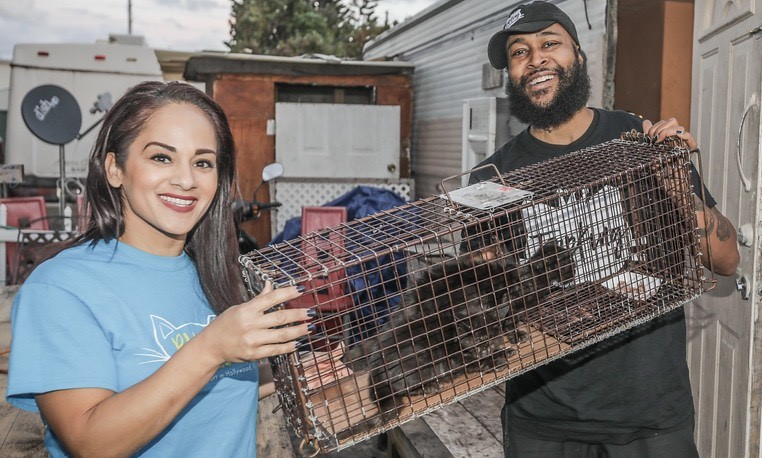
How have cats and music come together in your life?
The crazy part about it is that I feel like my whole point in music, being in entertainment and getting used to being comfortable speaking, was so I could deliver this message. It wasn’t so that I could stand on stage and look cool rapping a song. I wanted to properly deliver this message, to make change, and to get awareness and get this stuff out to different demographics because it’s needed. It’s crazy that this has been going on since before I was born and there’s still so many people who have no idea what TNR is. I still get people that ask me if it’s a drug or a dance. WOW!
When I was doing music, I could make some money and I could look cool — it feels fine. If you can actually feel good on the inside, I think more people would. People talk about that runner’s high you get when you run, run, run and then you get that feeling of bliss. When you rescue and volunteer, I think some endorphins go off or something like that. When I see cats walking around with ear tips I feel like I’m a part of something that’s bigger than me and it’s dope to know I’m really helping a situation. It’s a good feeling.
I have three cats and two of them travel with me everywhere. My cat Bowie travels with the Amazing Acrocats as a lead drummer in the cat band — if you can believe that. He’s with the Acrocats a lot more than he’s with me, but that’s my baby Bowie. All of my cats are named after music themes. Bowie is named for David Bowie, of course, because he and I have the same birthday. I also have Damita Jo, named for Janet Jackson’s middle name, and Alanis Mewissette.
Where did the title “Trap King” come from, and what does it mean to you?
I was at an animal conference in Atlanta after I’d been working for the shelter for a while and I had started training with people on community cat care and TNR. At first I was just scooping litter, but I started training and doing TNR. I went to the conference to learn more, and in one of the classes about starting a community cat program I thought about rap. So many people in rap call themselves the ‘Trap King’ or ‘Trap Queen’ and that word is so overused in hip hop and the Black culture … ‘Trap King this’ and ‘Trap Queen that’. I’m sitting and I keep hearing “Trap, neuter, return – trap, neuter, return”. I realized I can be the king of Trap, Neuter, Return! I realize it can reach and grab different demographics and the people that really need to learn.
Black people just are not aware of cat rescue. There’s a stigma to not like cats if you’re a Black person for some reason, and I wanted to change that. I think, oh snap, if I’m the Trap King, that’s going to resonate with certain people and get more men involved, get the Black community’s attention. I could fill a void! I know I looked like I wasn’t paying attention to the speaker at that talk, but I was in the middle of an epiphany. I was all in, and then I then I just needed a logo. I wanted to come up with something that looks like a hood Hello Kitty.
As soon as I came up with it, I knew I could made it cool. When I was little, it wasn’t cool and I didn’t know nothing about rescue. If somebody like me came to my neighborhood and tried to teach me about TNR and cat rescue I would have been blown away. I never knew and I had no idea what any of that meant — cat rescue, the vacuum effect, TNR, feeding colonies. I never knew none of that stuff. Right there, I knew I could made it cool. I’d make it hip to have a cat if you’re a guy. I could make this cool, I’m going to make this cool.
You devote so much time to educating people about cat rescue and animal welfare. Why is education so important to you?
I think education and communication, not even just with cat rescue but for all humans, is needed because of a lack of education and a lack of knowing. Race, gender, no matter what barriers we try to put up between ourselves — those help build a wedge for people not to listen. They don’t want to listen so they never take it in, so it’s almost like a stand-off between “I don’t like this” and “You don’t understand”. I wanted to build and make people want to listen. Education is extremely important, and unfortunately race is an issue. A lot of times, when I started going out, even when I worked for the shelter, I’d see the difference between when me and the shelter went into these neighborhoods, all in uniforms, and we’d knock on the doors and say, “Hey, we can help you with your cats and dogs.” Most people wouldn’t answer the door. They’d just look through the window or tell us to get out, saying they don’t need their cats fixed. It was foreign and they were scared.
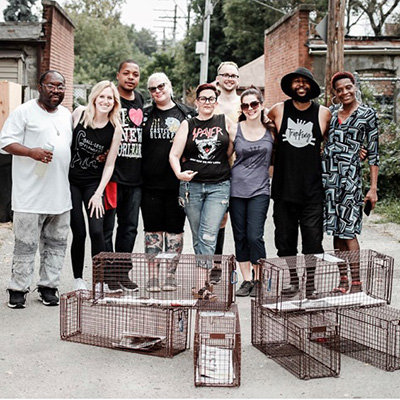
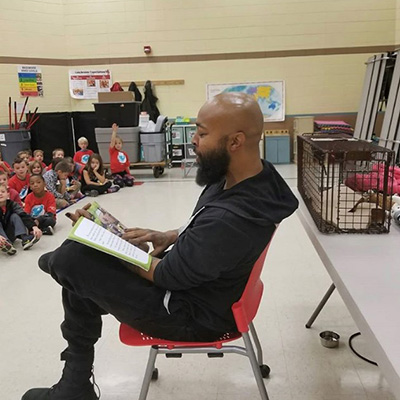
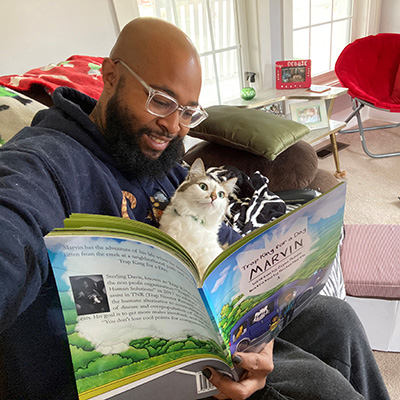
Then, when I would go into the neighborhood without a uniform and just hang out with some dudes and start talking about cats, everything was totally different. They thought the shelter was trying to take their dogs. They just weren’t getting it. Education is important and it hasn’t been there. I think our differences come from a lack of education and understanding. If we just sat down and talk and educated and learned from one another, we would realize that it’s not that bad at all. These ideas aren’t crazy! It’s great as the rescue community diversifies that there are different avenues to get this information out to different people.
What are some small ways that you think other people can help animals?
I’d say, for one, the littlest thing is hitting the hood of your car or truck in the winter before you start it up. Be aware that cats are here and exist. Growing up, people see dead cats or opossums in the road and become desensitized to that. So just be aware that they’re here. Understand what a colony is. Speak to a rescue and understand why cats are coming to your neighborhood instead of being angry that they’re there. There’s a reason those cats are there, and you can probably help the situation with something as simple as spay/neuter and a decent deterrent if you don’t like them on your yard. I’ve helped people with devices to spray water or even fake coyote urine to keep cats out of their yard. Learn about spay/neuter, and understand that they’re living creatures with rights. Understand and know these little things, and there’s no need to be abusive towards them. The cats aren’t working against you at all. They’re there because they have a right to be there and they can help! I tell people that if they want me to remove the cats that I won’t catch rats! If I could miraculously find a barn and take all of the community cats away, I would not come back to catch all the rats that come when these cats are gone.
Published: February 22, 2021



